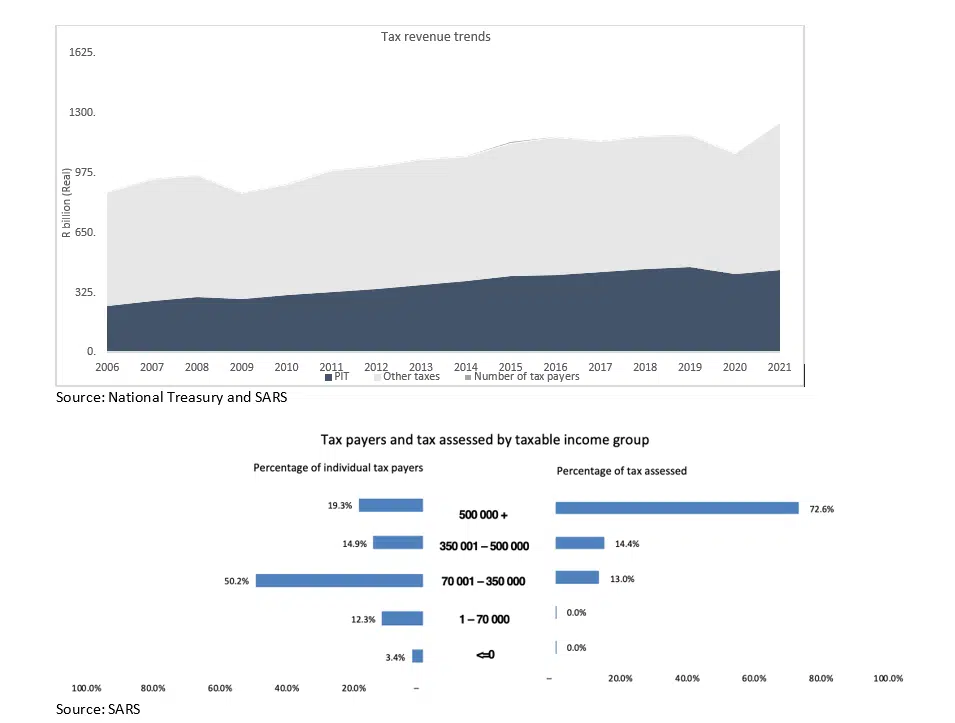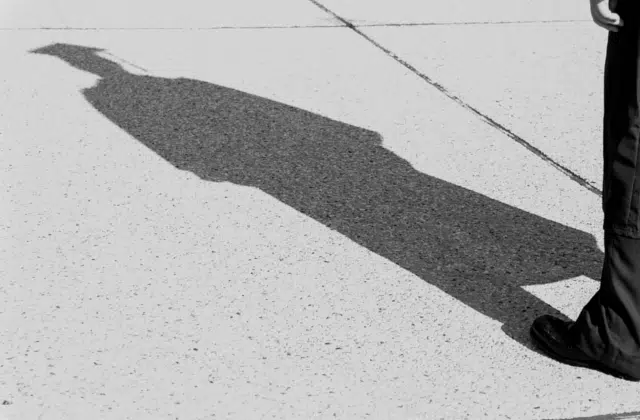
Warning over South Africa’s shrinking tax base
South Africa’s tax base is shrinking, and the South Africa Revenue Service (SARS) is going after those who are taxpayers harder, says Keith Engel, the chief executive officer at the South African Institute for Tax Professionals (SAITP).
Speaking to 702, Engel said that in the year 2000, the South African population was roughly 45 million – this figure has since increased to around 60 million in 2022, but the tax base has not grown proportionally.
Overall, there is a slightly smaller number of people who are paying income tax for an ever-growing population, he said.
Engel said that as the wealthy contribute to a larger portion of the tax base, they are also now taking money offshore or moving overseas.
“If you try to tax them too hard, to get your fair share, they are likely to leave,” said the tax expert.
He said that the wealthiest 2% of the taxpaying population, which contributes more than 30% of individual tax revenue in the country, is vulnerable and best not pressured too hard by SARS.
According to EY’s chief economist Angelika Goliger, between 2003 and 2012, the number of personal income tax (PIT) taxpayers grew by 7%; however, some of these gains have been eroded by a 2.1% decline in the number of taxpayers.
PIT remains the largest source of tax revenue domestically (39.1%), and it is particularly worrying as there were only 5.2 million taxpayers in 2020, representing 9% of the population and contributing 40% of the country’s total tax revenue, said Goliger.
According to SARS, in 2010, there were 5.5 million taxpayers assessed; however, in 2019, there was a significant decrease to a total of 4.9 million assessed taxpayers.
Engel added that the tax base, as a result of the tough economic times over the past two years, has shrunk as people move to lower levels of income. Some middle-class households have slipped into the lower middle class, he said.
He said that SARS is trying to uncover ‘hidden’ revenue from a percentage of the tax base with new methods of accessing wealth and tax compliance.
The tax collector said that it plans to pilot new methods of taxing and tracking funds for well-off taxpayers. The tax authority has created the High Wealth Individual Unit that seeks to detect taxpayers who do not comply with tax regulations and/or are individuals with gross assets worth R75 million.
On top of the new unit, SARS is piloting a new initiative to test if it can use existing legislation to target unexplained wealth or if it should adopt an international approach focusing on a standalone Unexplained Wealth Order (UWO).
A UWO could lead to a court lead to a court confiscating unexplained wealth on the basis that the wealth of a person or entity is disproportionate to the lawful income derived or declared by the person – and they cannot reasonably justify it.
The alternative
Engel said that SARS is tapping into more tax streams, but the easiest way to access a more extensive tax base is to grow the economy.
The problem is more an economic problem than a tax one – you can’t look at taxation in isolation, said Engel.
The Organisation for Economic Co-operation and Development (OECD), in its latest Economic Survey for South Africa 2022, recommended that the South African government broaden the tax base.
The organisation said that there could be a slight lowering of the minimum income tax threshold to include some people earning between the minimum wage and the current income tax threshold.
It noted, however, that the country’s progressive personal income tax schedule is undermined by deductions that largely benefit high-income earners.
Read: Why you should be positive about the future of South Africa: CEO




